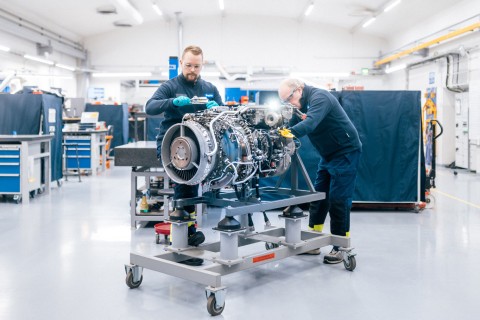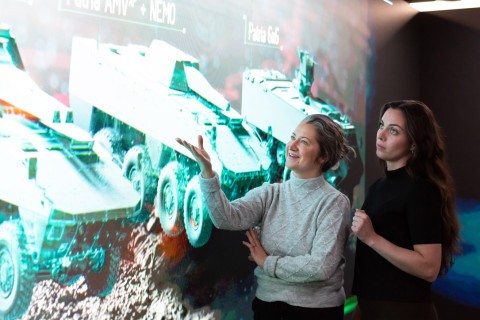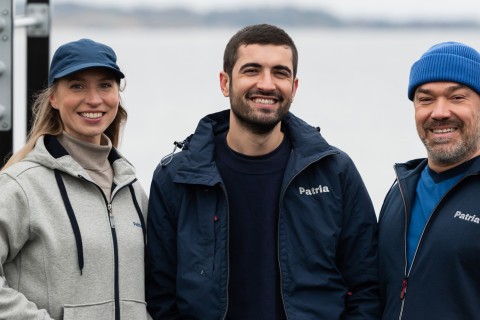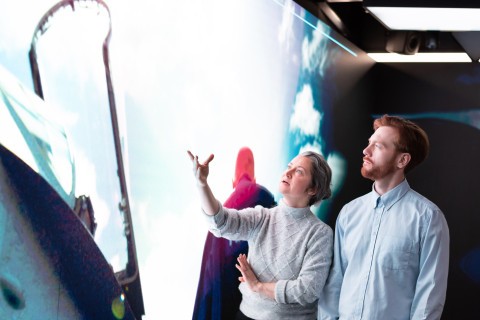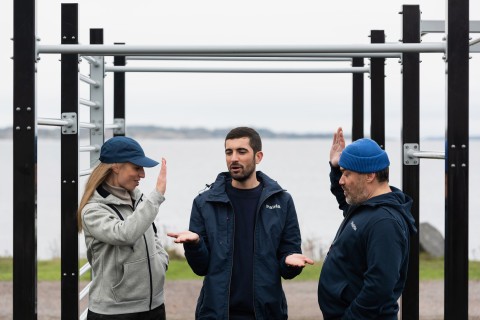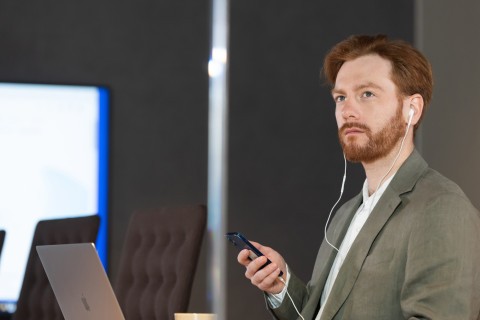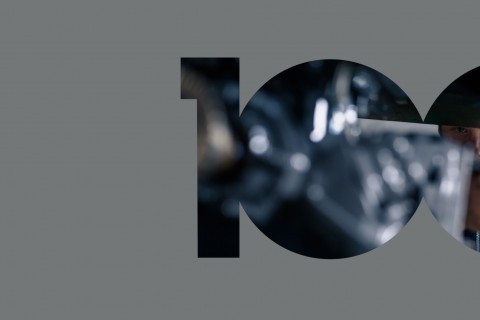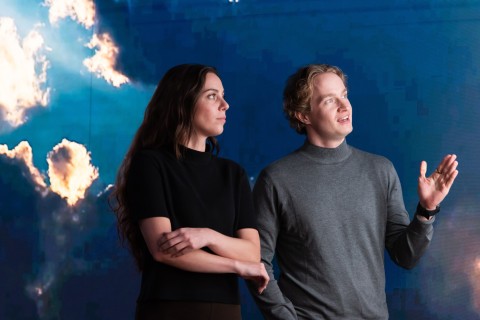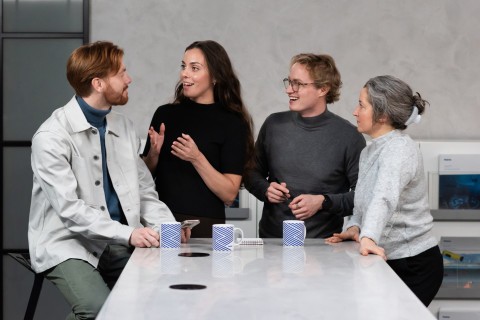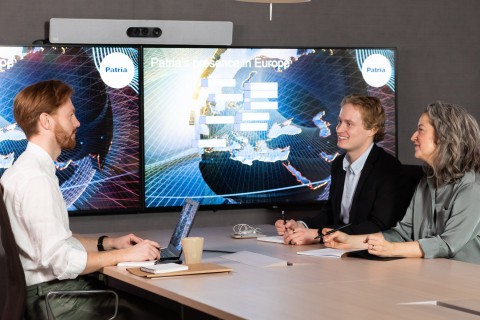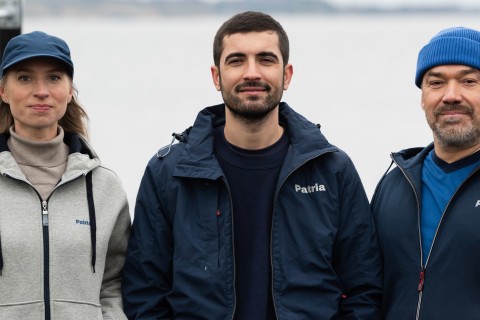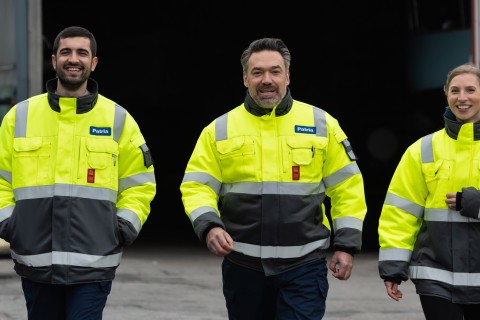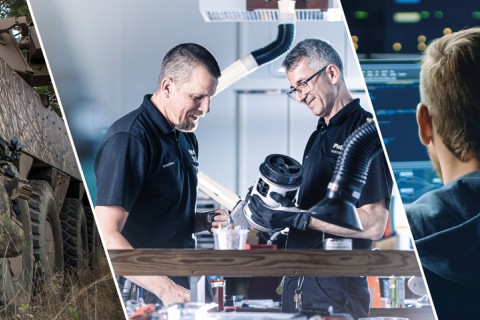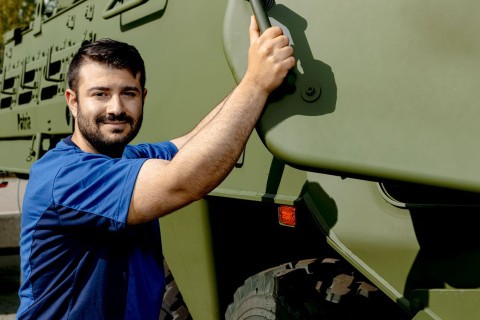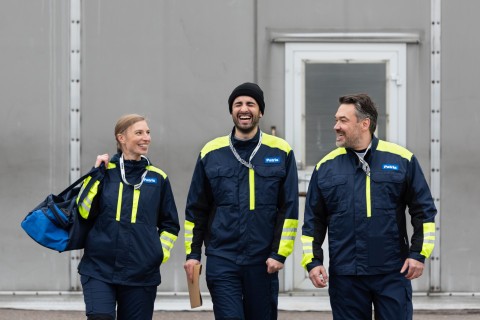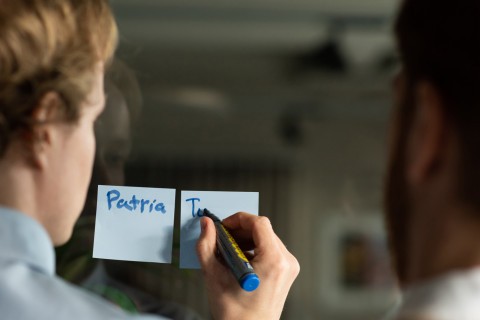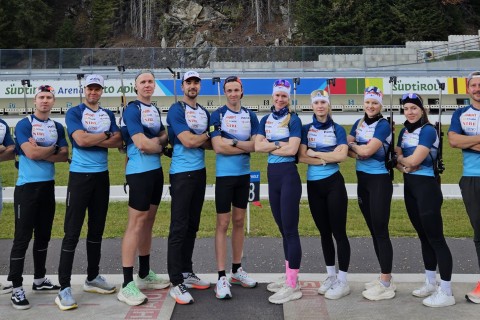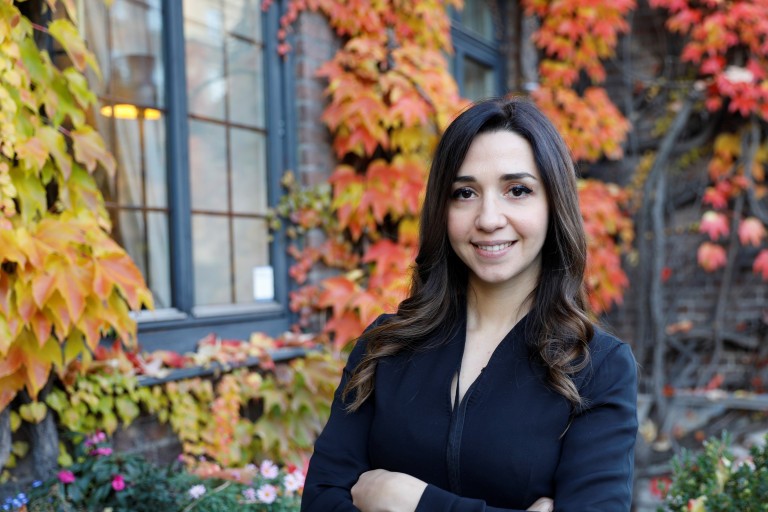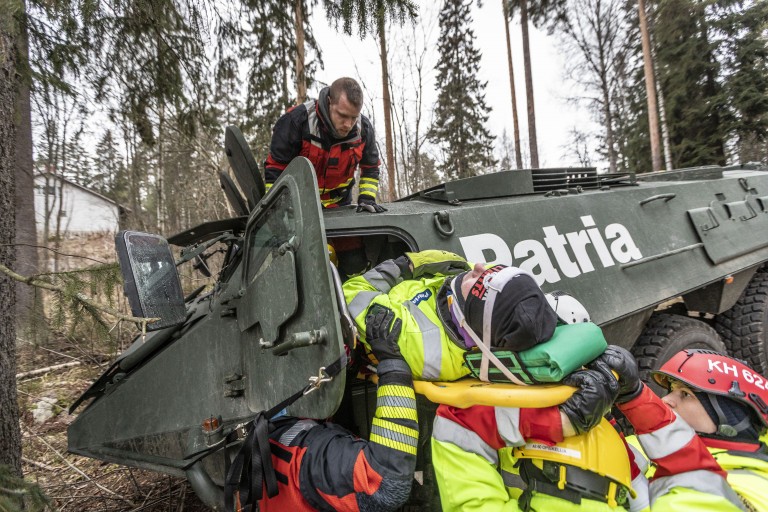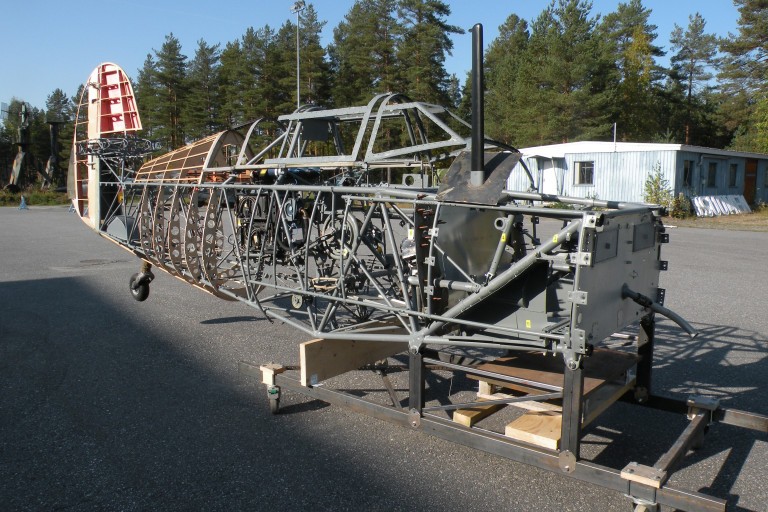
Patria’s Christmas donation goes to Vamos youth programme
15.12.2016
Patria has been donating the money that would otherwise have been spent on Christmas cards and presents to preventing social exclusion of young people. This year Patria’s Consultative Committee decided to give its donation to support the Vamos youth programme organised by Helsinki Deaconess Institute.
The row of shoes near the entrance is getting longer, and you can hear the clink of dishes in the kitchen, and smell fried eggs. Some of the youngsters are laying the table. A group meeting is about to begin in Vamos Herttoniemi in the morning. Herttoniemi is one of the two Vamos centres in Helsinki, of a total of six in Finland. Vamos, organised by Helsinki Deaconess Institute, provides activity for people aged between 16 and 29 who have dropped out from school or have no work, helping them with in the form of individual support to get back on track. The objective is to help these young people find a direction for their future, meaningful things to do, a study place or a job. “Some of the young people that come to us have fallen almost entirely outside the scope of the service system, and have no work or home. We start off by directing them to whichever service they most urgently need,” says Unit Director Vesa Sarmia of Vamos. “Some, on the other hand, may have behind them a massive history of help that has been tried and tens of contacts with help personnel, but no traditional method has been helpful.”
Dreams, goals and friends
Vamos is a low-threshold centre, where no referral is required, everyone participates out of their free will, and it is free of cost. Each person is designated an employee who will learn about his/her situation thoroughly. “We are result-oriented, which means that anyone coming to us must be motivated to achieve a change in their lives,” says Sarmia. Coping from day to day, mental wellbeing and recognising your own resources and strengths help people to set targets and eventually land a study place or a job. “We start off with their own dreams. It is vital that we meet these young people as persons, not as customers who will be told behind the desk what they should do,” says Sarmia. He is particularly concerned about the number of young people dropping out of secondary education, and long-term unemployment of young people. “This results in social exclusion, not inclusion. The feeling of being left alone is indeed at the root of many problems,” says Sarmia. “Social contacts, commitment to treatment or returning their trust to other people are good ways to getting started. If we can get a young person to become committed to education, we are on a firm footing.”
Change for the better by doing and learning
Vamos offers individual counselling and also activity in groups, where the participants learn to work together and with the assistance of external partners. The groups meet 3–5 times a week for about four hours at a time. A six-month period is divided into different themes, choosing working methods that suit the group best. Many young people may have poor experiences about school, bullying or equivalent. “This is why what works for schools, with rigid timetables and all, does not work so well with us. Many people who come to us dream of getting a job. We help them by building the requirements for achieving this, perhaps by helping them to finish comprehensive school,” says Sarmia. Young people spend an average of six months at Vamos. When asked about their wellbeing, 87% of them feel that Vamos has made their lives better (figure for 2015). Some 65% of those who have been to Vamos land a study place or a job within the next 12 months.
Suvi’s experiences
Suvi, 23, has been involved in a Vamos rehabilitative group for some three months. “We have visitors telling us about different professions, and we can express our wishes on what we want to hear about. We also make visits to various places. In addition to this, we cook and do sports, kind of everyday stuff,” says Suvi. Suvi’s first goal is to find a nice work trial, but she has dreams and plans beyond that. “The Vamos guys, the people who work here, are absolutely wonderful! When I came here, I was a bit excluded and kept to myself, but now I have made new friends. That’s probably the best thing.”
What did you like about the article?
Thank you for your opinion! You can share the article on social media using the buttons below:

